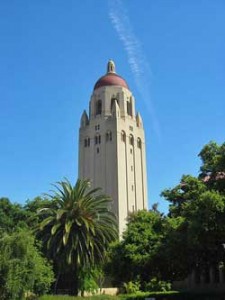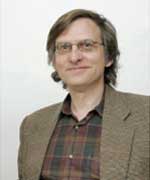



Pre-Conference ‘Conference’ – Stanford ME/CFS Symposium, Wednesday, March 19th

The pre-conference Symposium is chock-full of interesting presentations from Stanford faculty including one on a ‘novel inflammatory and autoimmune’ signature
Stanford’s Chronic Fatigue Symposium bears notice for a couple of reasons.
A) The fact that one of the top medical schools in the country is producing a symposium on chronic fatigue syndrome is startling and encouraging.
B) The fact that the Symposium mostly consists of Stanford Researchers presenting their own findings indicates how quickly and effectively Dr. Montoya has managed to get other faculty members engaged in ME/CFS. Getting the best and the brightest engaged in ME/CFS research is not a bad thing at all.
The Symposium will feature have talks from seven different Stanford researchers on a broad range of topics including daily cytokine fluctuations, gene expression findings, cardiovascular ‘aging’, MRI findings, EEG studies and then from Dr. Montoya on cytokine findings that reveal ‘a novel inflammatory and autoimmune profile’. Patients can attend the Symposium by registering as ‘Allied Health Professionals’.
Congratulations to Dr. Montoya for moving so far with ME/CFS at Stanford.
Patient Conference – Thurs, March 20th
One of the stronger Patient Conferences occurs on March 20th. Dr. Lipkin will talk on “Small Game Hunting” a subject he will reprise in the professional sections of the conference. Dr. Komaroff’s talk on “New Developments in the Possible Causes of ME/CFS” will certainly feature VanElzakker’s Vagus Nerve Infection Hypothesis which he has taken a strong interest in. Hopefully we’ll learn more about his and Van Elzakker’s attempts to begin a study to assess the hypothesis.
Dr. Friedberg, a person of ME/CFS who knows of what he speaks, will talk on coping, a important (if not particularly compelling :)) subject as we wait for more answers to ME/CFS.
Dr. Lapp will speak on medications for ME/CFS and Dr. Montoya and then Dr. Klimas, in what should be a couple of very interesting sections, will talk on antivirals and immune modulators.
Talks on severely ill patients (Dr. Lapp), activity management (Staci Stevens), pacing, etc. (Bruce Campbell) and a Fibromyalgia Update by Dr. Bateman bring us up to the first best-selling author ever to present at an IACFS/ME Conference. Dr Abraham Verghese (author of “Cutting for Stone”) will talk on “The Physician-Patient Relationship in the Genomic Era”.
Professional Conference
Thursday, March 20th – Workshops
Workshops start off the conference.
Appearing in his first ME/CFS conference, Dr. Ian Lipkin is going to start off a day of workshops by talking on ‘Small Game Hunting” which probably refers to the microbiome in the gut. You may remember that the gut is where he believes ‘the action’ is in ME/CFS. Several interesting gut studies will be presented at the conference.
Dr. Peterson will do a workshop on Immunology while Stephen Krafchick talks on legal issues, and Workwell group speaks on exercise intolerance and how to manage and treat it. Meanwhile Faith Newton will translate science into the classroom for clinicians, patients and educators.
In the afternoon Dr. Lapp is going to take on the difficult job of explaining how to treat the severely ill. While he’s doing that Dr. Peter Rowe will cover diagnosing and treating orthostatic intolerance. Dr. Jason and Dr. Freidberg will focus on behaviorally assessing and treating ME/CFS, and Kathy Rowe will talk on how to translate pediatric research into treatment options.
Friday March 21st
Immune Session
This session will be lead by none other than Dr. Noel Rose, the Director of the Center for Autoimmune Research at Johns Hopkins University. How he came to present at this conference is probably a story in itself. but simply having Directors of major medical centers leading sessions at an ME/CFS Conference can only be good news.
Dr. Lipkin reported that he found dramatic differences in immune parameters between people who’d had ME/CFS less than three years and more than three years. He will flesh out the increased allergic response he found early in the disease. This finding could open new windows for understanding how chronic fatigue syndrome turns into a chronic illness.
Betsy Keller of Ithaca will take the floor to report on cytokine results after cardiopulmonary exercise test; a positive report (crossing fingers) would be very helpful in establishing why post-exertional malaise happens, and it would fit with Dr. Klimas’s finding that the autonomic nervous system triggers the immune system during exercise to produce the symptoms of ME/CFS.
The NCNED team from Australia will be digging deep into why NK cells fail in ME/CFS in two presentations, and in maybe the most intriguing presentation of the morning the CDC team is going to report on its genome-wide analysis of methylation.
Pathogen Session
Dr. Montoya leads off what’s going to be a very interesting pathogen section with Dr. Chia presenting both on the pelvic pain and enterovirus infection of the ovarian tubes in ME/CFS and on stomach infection. Dr. Chia has expressed concern about Dr. Lipkin’s results, and others (including the creators of the test) have expressed concern about test the Dr. Chia used (immunoperoxidase) to identify enteroviruses in tissues.
Treatment Session
Dr. Peterson will moderate a short treatment section thatfocuses on several mind-body practices and midodrine.
We will find out if a home-based management program for severe ME/CFS is very helpful. Wan Tiang Fang will come all the way from China to talk about Baduanjin exercise in people with ‘fatigue-predominant sub-health’, whatever that means 🙂
Given Dan Moricoli’s stunning progress using rigorous pacing, ‘exercise’ and yoga to take him from basket-case to impaired but now working doing the effect of isometric yoga on ME/CFS study could be quite interesting. Dan’s of the opinion that most yoga is not taught in a manner that works for chronic fatigue syndrome. We’ll be doing an overview of Dan’s excellent yoga video series soon.
One of the most interesting sections of IACFS/ME conferences is the diagnosing section where ME/CFS experts (Klimas, Lapp, Bateman, Vallings, Peterson) are given really difficult cases and are asked how they would diagnose them. This year it’s a 2 hour session.
Saturday, March 22nd
Definitions Session
Dr. Jason’s comparison of case definitions will no doubt provide significant information for the work going on in an area that’s increased in importance since the IOM contract began.
Public Health Sessions
The CDC multi-site ME/CFS expert study appears to dominate the second of the two public health sections with presentations on ‘natural course’ (how the illness progresses over time), what treatments help (!), and what co-morbid and ‘consequent’ conditions pop up over time. (I say appears because the CDC is not actually mentioned in the presentation titles, but what other multi-site study is going on?)
These should all show up as studies at some point, and the treatment study will both be fascinating and important. The big medical websites and most doctors now pretty much follow the CDC’s guidelines on treating ME/CFS. Those guidelines should change when CDC studies show that B-12 or an antiviral or an orthostatic drug works for experienced ME/CFS physicians. These studies will hopefully translate to more treatment options for ME/CFS patients not able to see ME/CFS experts.
The impact of the CDC’s ME/CFS expert doctors study on our understanding of the basic aspects of chronic fatigue syndrome such as what it is, how debilitating is, how it progresses over time, how it can be successfully treated, how heterogeneous it is, etc. should be large.
We haven’t seen any papers from the CDC on the multi-site study that’s been going on for several years. In fact the CDC CFS research team is overdue for publication; the last research paper was on heart rate variability in stationary environments in 2012 (hardly a game-changer) and a few more papers on genetic factors make up most of their activity dating back to 2008. Most of their efforts now appear to be going to this big study and the papers will hopefully start pouring out soon.
A ‘family aggregation’ (???) study from a prolific Spanish team will presumably present on how often ME/CFS runs in families. An earlier study found high, high rates of family associated illness in ME/CFS (and fibromyalgia) relative to most other disorders. A finding of strong heritability would suggest, of course, a strong genetic component to ME/CFS, and possibly provide targets for therapy.
‘Provocation’ Studies Session
An aptly named ‘Provocation Studies’ section will feature exercise testing. For the first time, I believe, every researcher/research group that has done repeat exercise testing on chronic fatigue syndrome will present.
Dr. Keller of Ithaca University will follow up her cytokine results after exercise by demonstrating how much more effective two-day exercise testing is compared to other tests at demonstrating ‘functional impairment’.
Workwell (formerly Pacific Fatigue Lab) has been digging deeper into what’s causing the exercise problems in ME/CFS. Dr. Van Ness will talk on how diminished ventilation (the ability to move air in and out of the lungs) may play a key role in the exercise problems. (If memory serves they believe oxidative stress may be whacking the very active muscles that move the lungs).
In an intriguing presentation Vermoulen from France will show that oxygen uptake and lactate (uptake?) are low during exercise testing. Low oxygen uptake during exercise has been observed by several researchers; it could explain a lot, and if Vermoulen is talking about low lactate removal, that would seem to fit in with Dr. Newton’s findings. (If he’s not it would seem not to. We’ll see!). It’s good to see that Vermoulen is still engaged in ME/CFS.
Early Registration Ends January 30th. For cheaper tickets register now.
A British Columbia team will hopefully lay to rest the idea that submaximal exercise tests tell us anything significant about ME/CFS.
Sunday March 23rd
Pediatrics Sessions
Dr. Peter Rowe will present on his fascinating finding that impaired range of motion in muscles is causing fatigue, pain, brain fog, etc., in many adolescents with ME/CFS. The problem appears to be that the nerves are being blocked from lengthening as they should during movement. That could cause everything from muscle pain to immune problems to brain fog. Rowe’s finding that simply lifting up and supporting a leg for a few minutes causes extreme symptoms in some people with ME/CFS has got to count as one of the jaw-droppers in ME/CFS history. My guess is that Dr. Rowe is on the mark with this.

Dr. Rowes studies are revealing an unusual inability to flex the muscle without causing pain and even brain fog in some adolescents.
In what might be one of the most overdue findings in ME/CFS, Dr. Rowe is also going to show that milk allergy/hypersensitivity is present in many. Hopefully the word will get out to watch the milk (and then watch the gluten).
The Broderick/Klimas/Fletcher team is going to show that a simple lab test (probably using gene expression markers?) can track how people with post-viral fatigue are doing. This sounds like it’s from their Good Day/Bad Day test. (Can anyone say biomarkers? Dr. Klimas has said we’re (she’s) getting closer for years.)
Asking sleep education to prevent adolescents from missing school seems like a lot to ask from that technique, but a Japanese presentation appears to suggest just that.
Brain Sessions
The big news in the brain section is probably the EEG study coming out of Stanford. It involves cortical hypoactivation (i.e., lower than normal activation of the brain) particularly in the subcortical areas. These are the areas such as the thalamus, hypothalamus, cerebellum, and other organs that make up the brainstem, and they specialize in producing fast, subconscious reactions. This could be huge.
This may be just the beginning from the Stanford team, though. Dr. Marcie Zinn has said they’re going ‘well beyond’ EEG and are using advanced LORETA methods, SnPM, and other new analytic techniques. Stanford neuroscientists are apparently very engaged in ME/CFS! We’ve always thought that new technology will lead the way.
As is customary Dr. Komaroff will end the conference with a summary.
Early Registration Ends January 30th. For cheaper tickets register now.
.











Will be very interested to read your reports from the conference Cort. It all sounds extremely promising and upbeat.
This all sounds fascinating. I have been thinking of going but you have now convinced me it will be well worth the trip ( I will be coming from Ottawa Canada).
Have you heard, Cort, if many other patients are planning to attend? I know it is difficult for many of us to travel, not just the cost in money but also in energy, but I find it very motivational to attend things like this. I also find it very pleasant to be around people, both physicians and fellow patients, that actually understand what I am going through. As you know, that is rare.
Claire
Typically a substantial number of patients attend both the patient conference and the professional conference. At every conference I’ve been to there are rooms set aside for resting and napping. If you can go it’s easiest to stay in the hotel the conference takes place in. Hope to see you there 🙂
Cort,
Is the day to attend for patients on Thursday?
yes
Very likely, I will be going 🙂
I’m planning on attending the patient one day conference as I live very close to San Francisco where it is located. The last time I went in Reno to this conference it was very interesting and the patient day was full of all kinds of those with varying levels of illness. Lots of others to talk with, bond with and share information with.
I was expecting that Cort–you might be attending to report on what is presented, but it sounds as if that’s not the case.
Hey Cort,
Just wanted to clarify, re the Stanford conference prior to the IACFSME dates…
When reading your article it sounded as if patients possibly weren’t welcome. At my last appointment there, they suggested I attend. So I looked back in my emails to find the details…
“If patients wish to attend, they may register as “Allied Health Professionals” at the lower registration fee.” ($75)
To register:
http://www.cme.stanfordhospital.com
Hope this is helpful!
Very glad to hear this Ann. I want to be at the Symposium! 🙂
Cort writes- “…and in maybe the most intriguing presentation of the morning the CDC team is going to report on its genome-wide analysis of methylation.”
It all comes back to what patients the CDC is using. If they’re going to be using the Georgia random-dialed patients then it’s probably just going to be yet more crap from our friends at good ol’ Can’t Diagnose Cases.
“Georgia random-dialed”! love that.
That’s a very accurate way of describing the cdc’s diagnostic criteria.
Good point….That random dialing was a mess….We’ll see how it goes.
Sounds like this will be an amazing conference!
Hey, Cort, your piece begins with, “I won’t be there…” but then in the comments section, it sounds like you might. Will you be there reporting on the findings? I do hope so. I wish I could be there so much, but I can’t be. Thanks for all the news you bring to us and the trouble you go to to get it!
My mistake – I will be at the Conference. I didn’t think I could be at the Symposium, but now I’m going to give it a shot.
One way or another I ALWAYS go to the conferences :). Thanks to the IACFS/ME for helping out and giving me a media pass.
I just found out that Michael Van Elzakker of the Vagus Nerve Hypothesis will be there presenting a poster. (The IACFS/ME, for some reason, denied a request to have him present his hypothesis….(sigh))
Michael Van Elzakker, I think, doesn’t have new data. I think it’s reasonable that (generally) hypothesis papers don’t get the same status as papers which have new data.
Agreed, but a hypothesis paper that gets this much interest should in my opinion get in there and get its author in front of the room. A good number of the studies presented at the conference will come and be gone with nary a ripple, but this hypothesis could explain alot and open up new ground. .
The Conference creators seem to want to stress the international aspect of the conference. There are two presentations on the UK BioBank, Kathy Rowe of Australia is doing three presentations, one on depression in pediatric patients, there are two studies on submaximal testing – one from BC, and yoga and buandaji??? exercise presentations from Japan and China.
IM Not So Humble Opinion – there was enough room to get him up there. Actually. I’ve thought there should be a session just on ME/CFS hypothesis where researchers present their case for what’s going on in ME/CFS
Good last point Cort.. Hope that will happen.
Howard.
Well, I thought you did, but sometimes I wonder how you manage to be so many places at once! Also, I wasn’t making the distinction between the symposium and the conference. I’m reassured and grateful to know you’ll be there reporting. Thanks so much!
I can’t say I’m impressed that Dr. Lapp is doing not one but two sessions on the severely affected as I have not been impressed with his advice on the severely affected (for example, this presentation in Japan
http://mecfsj.files.wordpress.com/2012/07/dr-lappe381aee8ac9be6bc94e585a8e69687hpe794a8efbc88e88bb1e8aa9eefbc89.pdf )
He seems to have a different philosophy for the severely affected: put simply, he doesn’t seem to believe there’s a ceiling of activity for such patients. If there is a ceiling of activity for moderate or mild patients, why can’t there be a ceiling of activity for the severely affected?
——–
29. Activity
Resting all the time is just as bad as pushing and crashing. No one ever gets better from lying around all the time. Once again, despite what you may hear from other sources even the sickest patient can do some activity, and it is important to attempt some activity if you expect to improve. Studies have shown that even CFS patients in wheelchairs can exercise as long as they do not over-exert. That leads to the question, how much exertion is too much. Exercise studies in our laboratory and elsewhere have demonstrated at least three ways to set objective limits on your exertion: interval activity, limiting your heart rate, and limiting the number of steps taken per day.
——-
What studies have shown that even CFS patients in wheelchairs can exercise as long as they do not over-exert? I wonder has he some interpreted the CBT/GET school papers as being on the severely affected. They haven’t been.
If there is a drug, people might improve – so I don’t accept that ” No one ever gets better from lying around all the time”
34. Severely Ill Patients
[..]
“Encouragement. Try to achieve something every day; and do not accept your current restrictions. (Aim to improve 1% each week!)”
Why are severely ill patients being lectured like this? Who would want to accept their current restrictions if they are severely affected?
Everyone can aim to be better but why are the severely affected in particular being lectured on this? As I said, he seems to have a different attitude to the severely affected: he is less accepting of their disability.
The main problem with the IACFS/ME Primer was the severely affected section.
He was one of the authors and I wouldn’t be surprised if he was the main author of some of the problematic parts.
I sent in some comments and suggestions for alterations.
I see he is part of the panel who are presenting on this so I’m not confident:
—
Session: IACFS/ME Clinical Practice Manual: The 2014 Revised Primer Guidelines Panel Chair: Fred Friedberg, Ph.D.
Panel: Lucinda Bateman, M.D., Kenneth Friedman, Ph.D., Leonard Jason, Ph.D., Charles Lapp, M.D., Lucinda Bateman, M.D., Staci Stevens, M.A., Rosamund Vallings, M.B., B.S.
Ouch. I normally hate to critique any doctor who is willing to try to help us, but I think Dr. Lapp is severely misguided in this case. That’s terrible advice for the severely affected. At my worst, the only thing that helped me recover was strict rest. The more rest, the faster I recovered. I think we’re all vastly more likely to be pushing to do too much rather than not enough. It’s human nature to fight against limits on the things you want to do. So if warnings are needed, they should be against overactivity not underactivity.
And no, even the sickest patient cannot do some activity. The sickest patient is overexerting just by breathing and trying to eat. That is activity enough to strain the sickest patient.
It makes me very sad and angry that someone who is supposed to be an expert in our illness could still be so mistaken when it comes to the most severe of us. It feels just like the frustration of interacting with the medical community as a whole, except worse because others are likely to give credit to his expertise.
I’m not severely ill, but asking patients to increase 1% a week does not seem to me to be alot. I don’t even know how you would determine if you’re doing such a small increase. How can you tell if you’re doing 1% more?
I agree, though, that most of us are more likely to push harder than we should than otherwise.
My guess is that Dr. Lapp is talking about things like stretching for people in wheelchairs. I don’t think he’s alone. Dr. Klimas also aims for as much fitness as possible. That said, Dan Moricoli (with Dr. Klimas) was on a very, very, very restricted ‘exercise regimen’; you could hardly call it exercise and it included lots of breaks and doing all the exercises on the floor and sometimes skipping them altogether…It slowly helped quite a bit. It was quite surprising, actually.
Great job Cort. Thank you for your continued dedication.
Cort,
If you are there at the conference on the 21, 22 and 23 could I request you to update us on the pediatric session and the isometric yoga exercises.
Thanks for all the information.
I’ll have to see what’s going on. I certainly hope to his hit the yoga section. If both sessions are on the days when only one thing is happening at a time. I’ll certainly get to them (unless I’m fried which does happen :))
I’m almost counting down the days until we get to hear more about what came from this conference. Really hoping it lives up to expectations.
From what I’ve read since the Vagus nerve theory emerged, yoga would help if that were the cause…interesting, very interesting.
Ramsay was unequivocal that ‘complete rest’ from the beginning gives the best prognosis. And he reports patients that got better in about three months. Nowadays we seem to accept that recovery is unlikely, but improvement may be achieved, over a long period. I think this generally worse prognosis is directly linked to the idea that sick people need to exercise. I do not understand why the achievement of higher levels of activity is given as a goal – why not ‘getting better’ as the goal? Responders here have pointed out that for the severely ill, breathing and eating are about the extent of it. For the less ill, getting to the loo may be all the ‘exercise’ that we need. Jason has done a study showing that patients who consistently maintain an activity level below their perceived energy level became able to do more, over a long period. If moving our muscles makes us worse, it’s a simple message. Setting ‘increasing activity’ as a goal is really badly looking at ME through the wrong end of the telescope. We don’t have drugs that cure, but we do have our body’s ability to figure things out if given a chance. Complete rest, then figuring out a lifestyle that minimises use of our muscles, is what can give it that chance. Rest is our friend. Our immune system is messed up, but if some people get better, it indicates that their immune systems have been able to figure something out. They’ve given it a chance to figure it out. Our aerobic metabolism is certainly dysfunctional, so the idea of achieving fitness through exercise is a non-starter. As many of us have learned to our cost. And a question we need to ask of everyone who does ‘exercise’ – what other exertion does your lifestyle involve? I was badly laid up for a couple of years with a back problem which meant I couldn’t sit, stand, walk or drive. I was helped to a swimming pool to do the swimming my chiropracter required, and I could do twenty laps. My ME got better, too. But as my back got better and normal activities of life resumed, swimming became impossible – every time I went, I was sick for a week. Women’s lifestyle typically involves much more physical activity than that of a male office-worker. In the hospital epidemics, it was the staff who got sick. Nurses were the highest proportion. Nurses work is very physically demanding. Then it was doctors – who, in a hospital, do a lot of walking around. Then it was office staff. At the Royal Free Hospital in 1955, 292 people got sick – only 12 of them were inpatients – the ones lying in bed. I think there is a message here that no one has yet considered. We need to look at our daily lives through the lens of an expert on the physiology of movement – and ration it. When we rest, we aren’t ‘doing nothing’. We are giving our body the energy it needs to combat whatever is causing our illness.